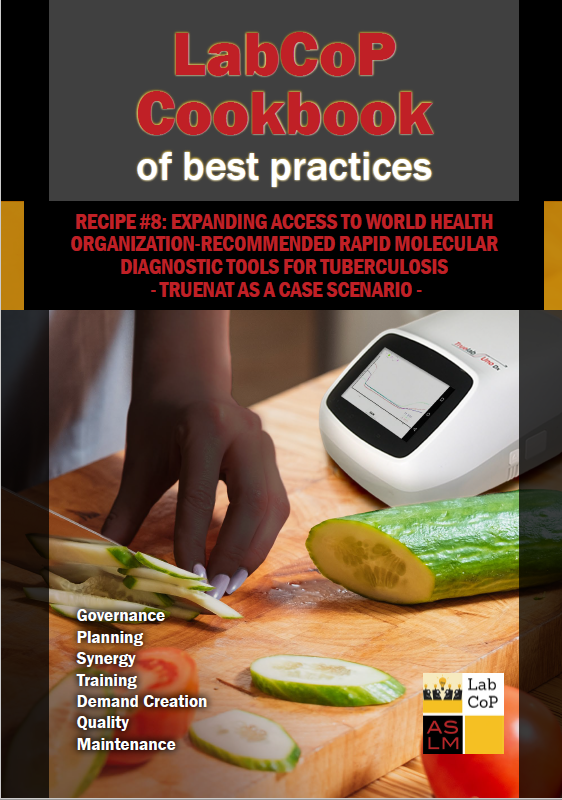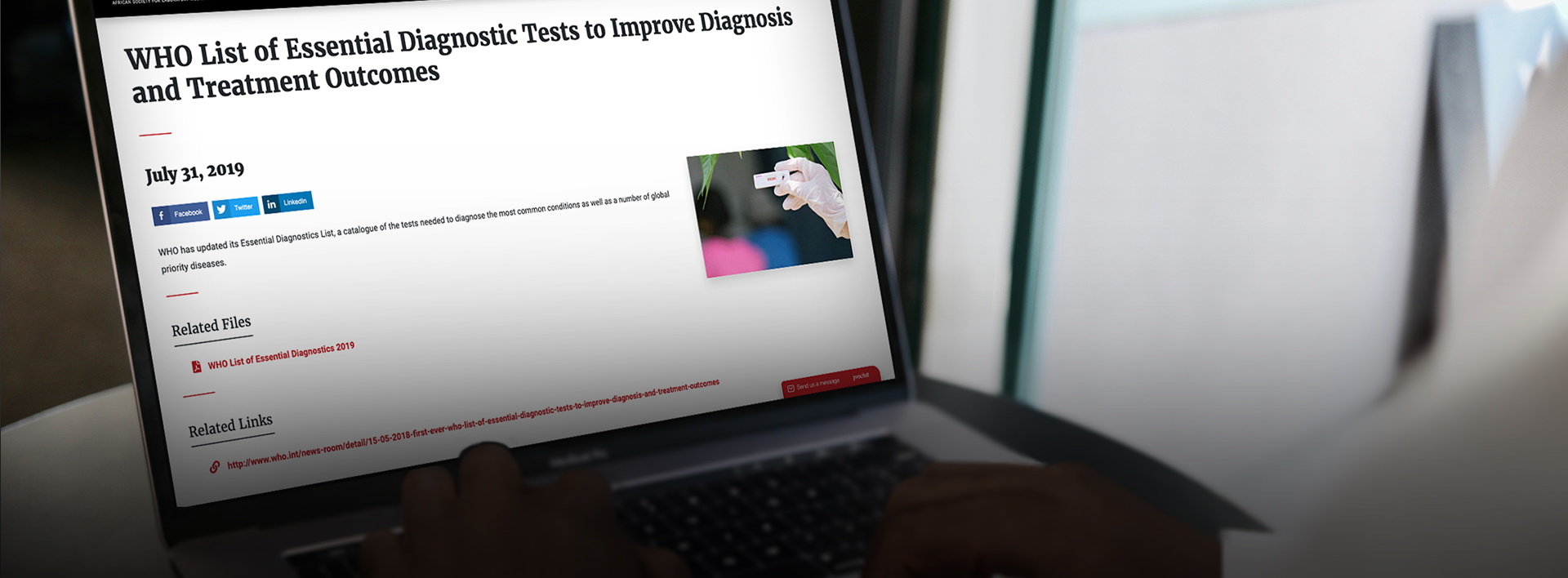Resource Centre
LabCoP Cookbook Recipe #8: Expanding Access to World Health Organization-Recommended Rapid Molecular Diagnostic Tools For Tuberculosis – Truenat as a Case Scenario
December 11, 2023

ASLM’s LabCoP team is excited to release the latest recipe in the LabCoP Cookbook of Best Practices: Expanding Access to World Health Organization-Recommended Rapid Molecular Diagnostic Tools For Tuberculosis – Truenat as a Case Scenario.

